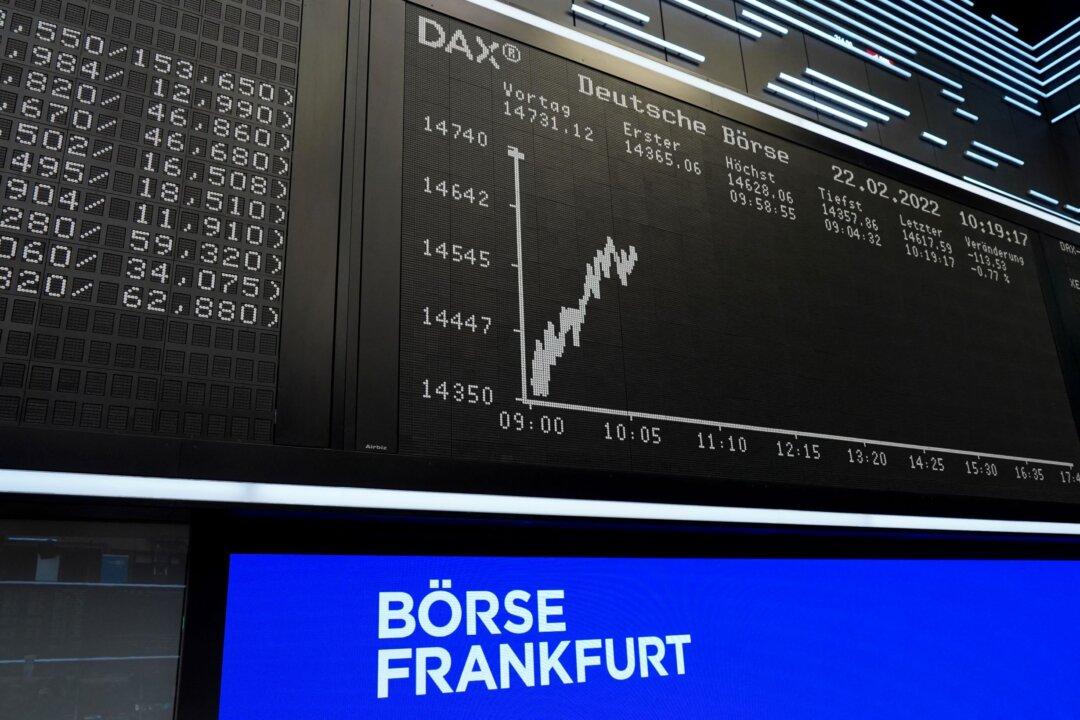European stocks sank to near 1-year lows on Friday, as auto and bank stocks took a battering on reports of a nuclear power plant on fire amid fierce fighting between Ukraine and Russian troops.
The pan-European STOXX 600 index fell 2.8 percent, on course for its worst weekly decline since the pandemic fuelled selloff in March 2020.





